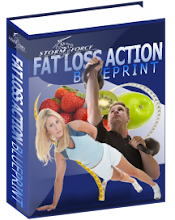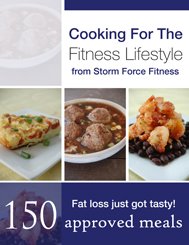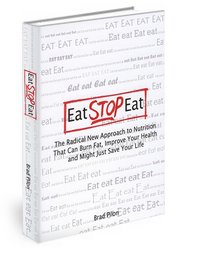We were talking about calories and how many calories were in a particular recipe in 'Cooking For The Fitness Lifestyle'.
I used to think calorie counting was the key to fat loss.
However, whilst it is useful as a guide especially for those who have no idea what to eat or how much for fat loss, consider the following....
Recipes
When you look at a recipe and it says it contains 350 calories how can you accurately replicate that when all eggs are different sizes?
I include calorie amounts in the cookbook as a guide but clearly it's not going to be 100% as your eggs may be bigger than mine!
Burning calories
If you have found out you should eat 300 calories 5/6 times per day to burn body fat, what happens if you walk up an extra 10 flights of stairs a few times that day because you're at a conference and the lift is broken?
What if it's 10 degrees colder and you are shivering more - should you adjust for summer and winter?

What if you have some labouring to do at home because you're doing up your porch?
What if your wife helps you with the labouring on Saturday but has to take the kids to a party the next day?
What if you play a better football team this week than last week so you have to run around more and work harder?

What if you have a physical job like a fireman? Some days you'll be sat down a lot because fortunately no-one needs you help. Other days you could be in action for 5-6 hours in a row. What do you do then? Are you going to whip out your scales and have an extra half an egg whilst you heroically hoist Mrs Jones out of her top floor window to make up for it?
What if Mrs Jones has packed on some pounds at Christmas, tripped over the fairy lights and sparked that fire. She weighs more than she did in November so it's going to require greater exertion to get her out - are you going to have to carbo load when you get back to the station?
I think you get the point!
It is physically impossible to accurately calculate how many calories you need each and every day so I really suggest you don't bother once you have gained insight into how big a meal size should be using estimates from reliable sources.
This is a perfect example of how many people spend so much time trying to create the perfect nutrition or training plan when they would be better off just getting the kettlebells out and beasting themselves.
The calories then take care of themselves!
This is the basis of the forthcoming Intense Conditioning program - worry about what matters!
Train hard.
Use high, low, no carb days in a cycle to trick your body into dropping body fat.
Eat clean, natural food.
You can't fail to get results.






5 comments:
While I do for the most part agree, calorie counting can serve a purpose.
That said... you do have to have a scale, and it's a total pain-in-the-ass burden on your lifestyle.
Calorie counting is not a substitute for exercise, but teamed together there's no question that can be very powerful allies.
My own personal take on calorie counting and weighing out food is that it's something beginners should use as they probably don't have a good idea or eye for portion sizes and how many calories they're consuming.
Once you get your eye in on how much food you need to eat then you can reduce the need for calorie counting as much - providing you are still heading in the right direction for your goals.
I do believe though that periodically, even experienced people should go back to calorie counting just to make sure they're still on track, it's all too easy to start sneaking in a few extra calories here and there and before you know it you're heading back to square one.
Thanks for the comments guys!
Like I said I think it can be useful for beginners to I agree with you there but past getting a fairly accurate ball park figure I see too many factors which can make it false accuracy.
Anyone who can say they need 2437 calories per day can only be a rat in a science lab!
I think the phrase 'once you get your eye in' from Jon pretty much sums it up!
I would think people with no clue starting out would get something from calorie counting.
But once you understand food better and what it gives you, that and a good exercise regime are key. Life is too short!
I agree that calorie counting is essential for the clueless. After years of exercising and watching my portion sizes and nothing happening, I finally decided to start counting calories and realized I was only ingesting about 700-800 calories per day. I doubled that, cut *way* down on my exercise, and 10 pounds melted off effortlessly! Talk about a bittersweet revelation! All those years of being so disciplined...
So yes, when you are struggling, it's best to have a good idea of how many calories you are consuming, even if it is just an estimate. Even though it may be a "pain in the ass", it's not nearly as annoying as exercising diligently for 10 years with no results!
Post a Comment